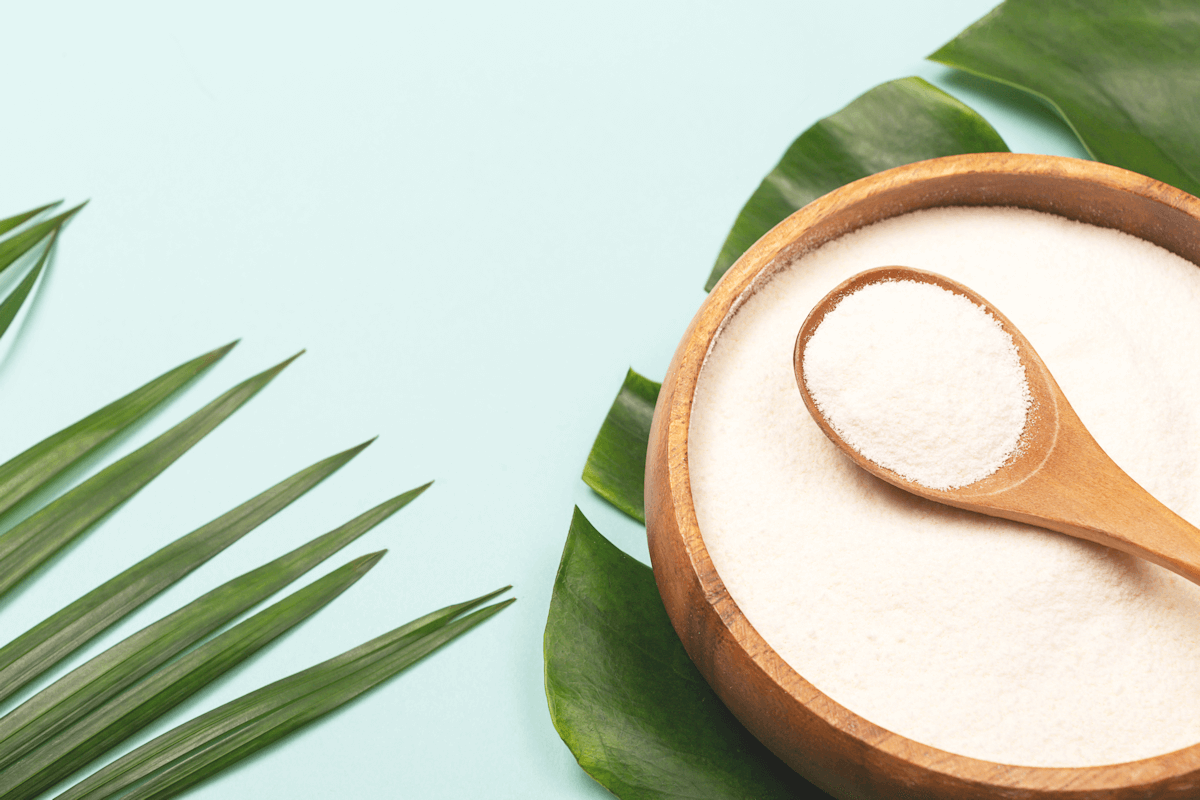Collagen is a buzz word that you’ve likely heard around the nutrition isle at the grocery store and among health-conscious friends. But just what are collagen peptides and why are they significant? What are their benefits? And, what are the best collagen peptides to supplement with? In this article, we’ll dive into all of these questions and help you navigate the world of collagen in general.
What is Collagen and What are Collagen Peptides?
To grasp what collagen peptides are, it’s important to have a firm understanding of collagen first. Collagen is protein that comes from animals. It is in fact found in fish, mammals and humans. Collagen is a building block of connective tissue, cartilage, skin and bone. Collagen supplements tend to come from cows (bovine) or fish (marine). Collagen peptides are simply extremely small pieces of collagen. It’s as easy as that!
Essentially, collagen proteins are broken down, usually through a process called hydrolysis, into even smaller pieces that can be more easily digested and absorbed by our bodies—thus making it a more effective method than whole collagen for supplementation.
That’s it! Collagen peptides are simply a very absorbable supplemental form of collagen. But let’s dig a bit deeper into why you’d want to take these supplements to begin with.
What Are the Benefits of Collagen Peptides?
Because collagen plays SUCH an important role in our bodies—and our bodies naturally begin to produce less collagen as we age—collagen peptides can help replace this collagen loss. Essentially, collagen peptide supplements support our body’s ability to make collagen so we can stay looking young and healthy.
Specifically, since collagen peptides have been broken down into tiny pieces, they’re easier to absorb into the digestive tract. Once absorbed, the body can put them to good use!
Incidentally, it’s also thanks to the fact that collagen peptides are so small (with a very low molecular weight), that they can dissolve in hot or cold water—making them incredibly easy to supplement with!
What Are Collagen Peptides Good For?
Ok, so now we know what collagen peptides technically are and we know some of the benefits—but what are collagen peptides good for? Why would you care to supplement with these little amino acids?
Well, for one thing, collagen peptides are a fantastic source of protein. If you need a good protein supplement, collagen is easy to add to any drink—be it a smoothie, coffee or even ice water—thanks to it’s high absorbability. You can even add it to soups or broths. It doesn’t add any weird texture or flavor, so it’s incredibly versatile. But collagen peptides are also good for so much more.
Collagen peptides help to hydrate and decrease signs of aging in the skin. They can support healthy hair and nails. They can ease joint pain and support healthy connective tissue. Collagen peptides even help with gut health, helping to heal leaky gut syndrome and supporting the integrity of the digestive tract. And, there’s more.
Collagen peptides may also help with heart health by strengthening blood vessel walls. It can increase bone mineral density, especially important for those at risk of osteoporosis. Essentially, collagen can keep us youthful, flexible and healthy. Pretty impressive.
What Are the Best Collagen Peptides?
When it comes to supplementing, there are a few things to consider in order to find the best collagen peptides for you. Collagen supplements typically come from one of two sources: bovine and marine.
Bovine: Bovine collagen is made from the skin and bones of cows. Bovine collagen is high in collagen Type 1 and Type 3, which have different uses for the human body.
Marine: Marine collagen (also known as fish collagen) supplements are typically made from fish scales, which are tremendously high in Type 1 collagen, which is the most abundant form of collagen in the human body. Fish collagen is usually more environmentally friendly because scales can be sourced from fish that will go to the food market—thus there’s no need to catch more fish to produce the collagen. Fish collagen is also smaller and more digestible than bovine collagen, implying it will be more effective.
Collagen can of course be sourced from other animals as well, such as chicken or pig, but you won’t see these on the market so often. Another important factor to notice when choosing a collagen supplement is whether it’s hydrolyzed or not. Hydrolyzed means the collagen has undergone the process discussed earlier in this article that breaks the peptides into ever smaller peptides—making it more bio-available (easily absorbed) to your body.
How to Increase Your Collagen Levels
Obviously, supplementation with collagen peptides is a great place to start.
Also remember that there are lots of natural ways to get more collagen into your diet. For example, you can eat lots of bone broth, organ meat, eggs and fish with the skin still on. Consuming foods with high levels of proline and glycine is also important, as these nutrients are necessary for your body to make collagen and thus support collagen in your body. Vitamin C is also critical to collagen production, so be sure to get this important vitamin into your diet daily!


